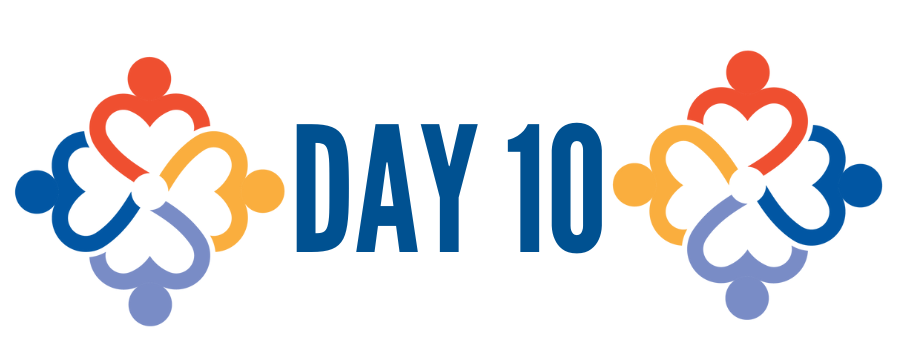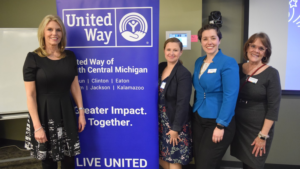
Day 10: Healthcare
Identity strongly impacts living conditions, access to quality health care, and chronic stress in the body. As a result, many people with marginalized and oppressed identities live shorter life spans and have a higher likelihood of adverse health outcomes.
Consider these findings:
- A study by the American Bar Association found that people of color receive lower-quality health care than white people, even when insurance status, income, age, and severity of health conditions are similar or the same.
- The 2015 US Transgender Survey reported that 23% of transgender respondents avoided going to a doctor when they needed to because they feared being mistreated, and 33% did not go because they could not afford it. LGBT older adults report having received inferior, neglectful health care or have been denied health care altogether.
- During the COVID-19 pandemic, many people with disabilities reported that doctors and medical facilities prioritized critical resources depending on disability. This resulted in people without disabilities receiving more attention and priority care at the expense of people with disabilities.
Disparities in health outcomes are rooted in discrimination across systems (healthcare, housing, education, criminal justice, finance, environmental exposure to pollutants).
Today’s Challenge
Read:
Many doctors have negative perceptions of patients with disabilities — and that impacts quality of care, study finds by Lauren Kent (Feb 2021) [5 min read]. Imagine if your healthcare provider had a negative view of you. Imagine how that might affect you and the care you receive. This article provides a closer look at how the negative attitudes physicians hold lead to health disparities for more than 61 million people who have disabilities in the United States.
‘I felt judged’: LGBTQ+ Americans report significantly more medical discrimination. The 19th News, (Sept 22, 2022). [5 minute read] This article reviews the findings of a 2022 poll that highlights the more negative experiences LGBTQ+ people had while at a doctor’s appointment compared to non-LGBTQ+ people.
Black Women’s Maternal Health: A Multifaceted Approach to Addressing Persistent and Dire Health Disparities. (April 2018) [10 min read] Black women experience disproportionately high rates of death related to pregnancy and childbirth. This article highlights the disparities in maternal health and what can be done about it.
Watch:
LGBTQIA+ People Talk About Their Experiences Accessing Health Care, North Western Melbourne Primary Health Network, (Jul 2018). [6 min watch] North Western Melbourne Primary Health Network (NWMPHN) asked LGBTIQ+ people to talk about their experiences accessing health care. Their responses might shock and surprise you. These are not isolated experiences. LGBTIQ+ people often face discrimination and stigma when accessing health care.
Aftershock (2022) [1 hour 30 min watch] A powerful new documentary airing on Hulu, follows two families after the preventable deaths of their loved ones due to childbirth complications and reckons with one of the most pressing American crises of our time – the U.S. maternal health crisis. (1 hour, 30 minutes)
How Health Care Makes Disability a Trap (Jul 2019) [13 min watch] Hear testimonials from people with disabilities as they describe their experience accessing health care.
Discussion:
- Have you ever had to wonder how your identity/ies impact your healthcare? What did you do as a result? What do you wish other people knew in order to better support you?
- In what ways are health inequities similar across different oppressed groups? In what ways are they unique?
- What feelings showed up for you as you learned about health inequity? Why might this be showing up?










